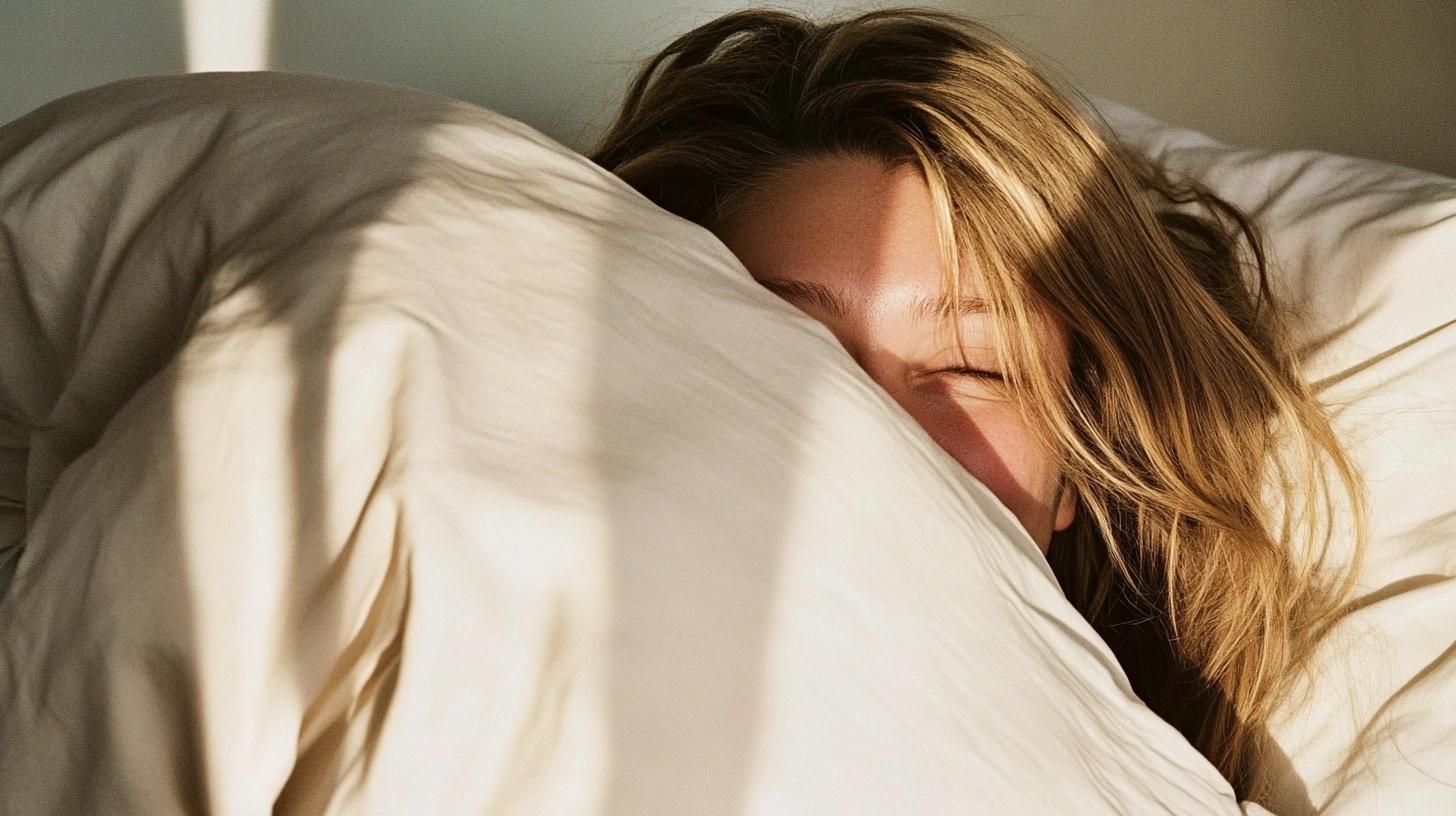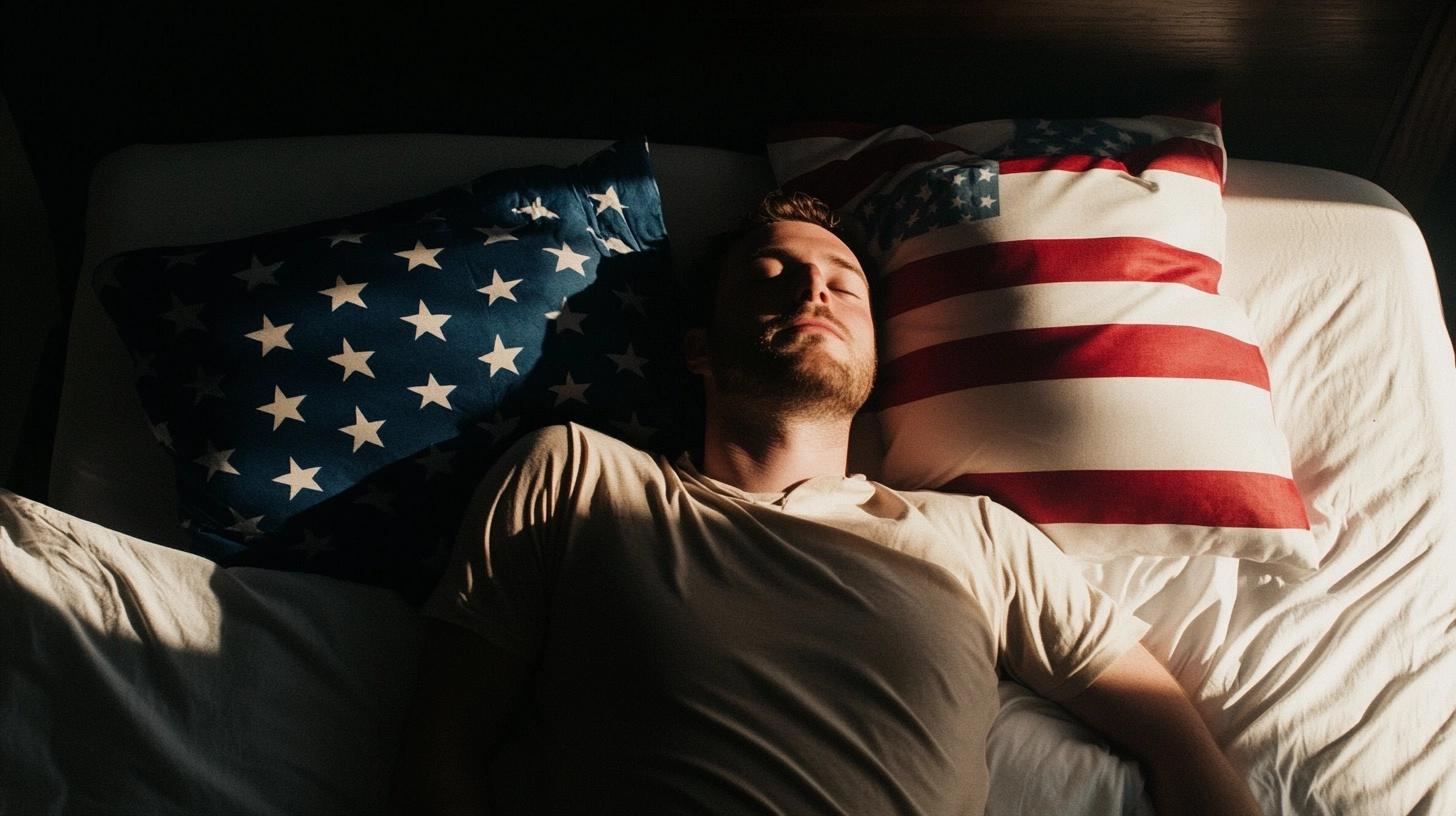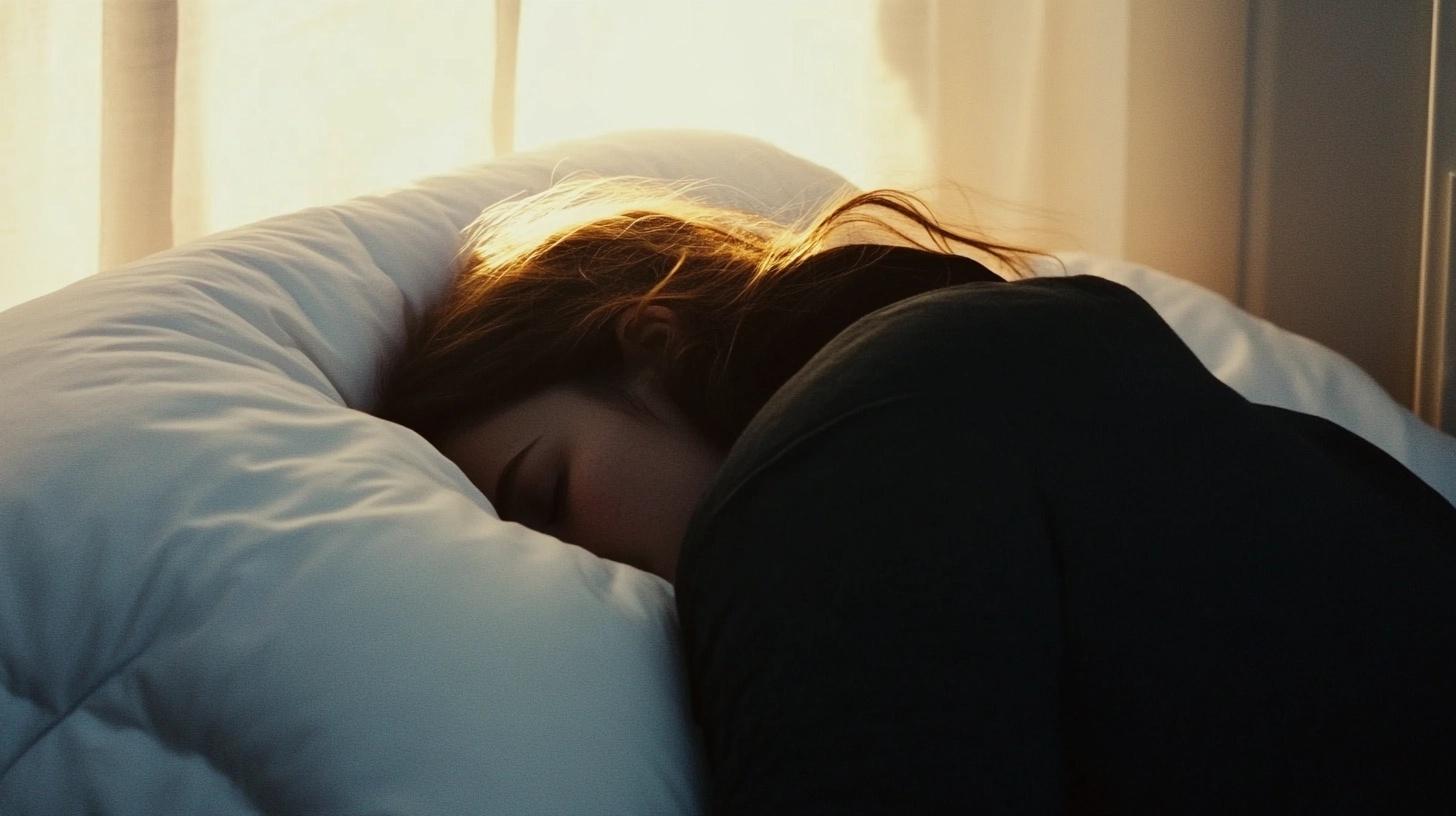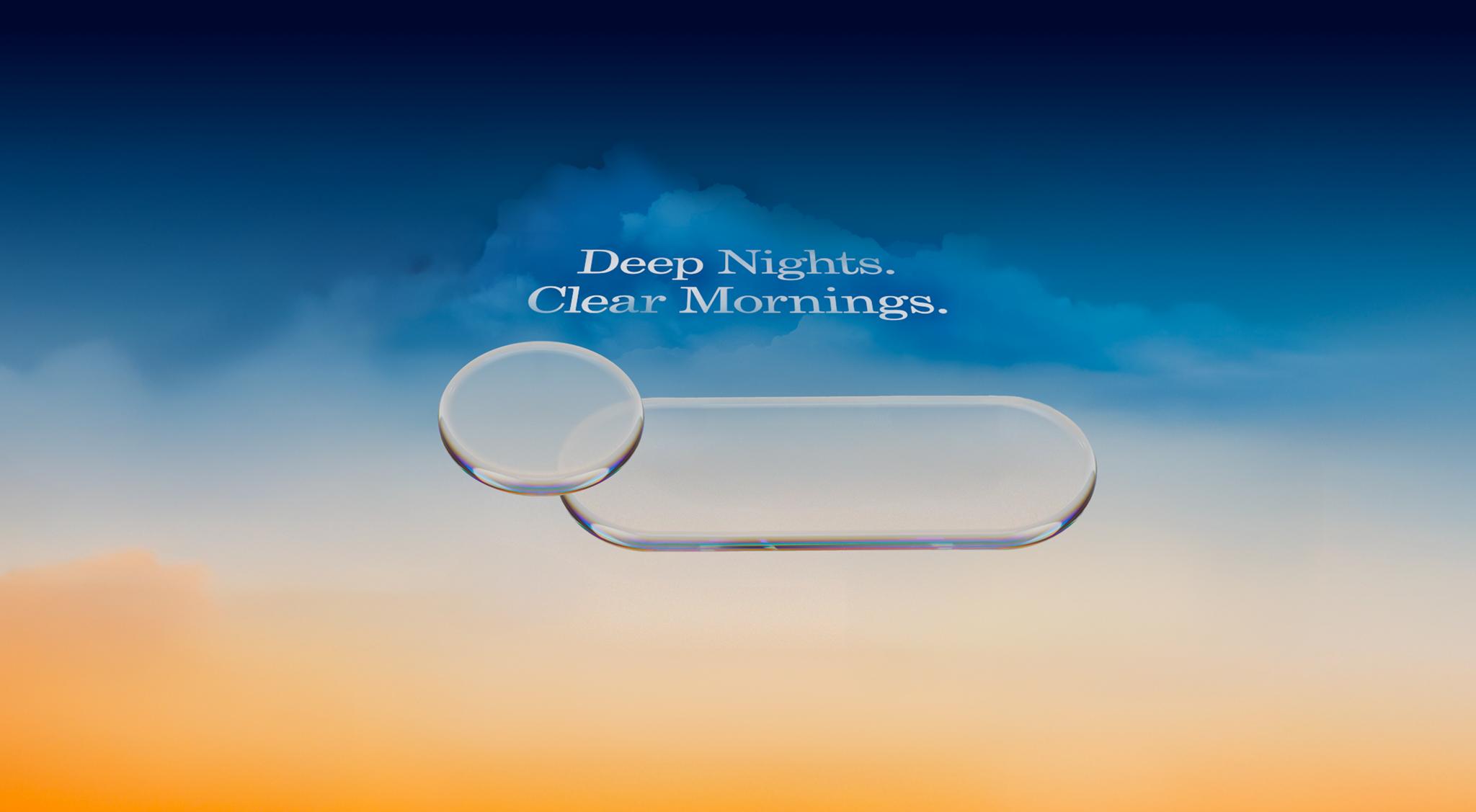Is 7 hours of sleep enough? - Answering the top question “how much sleep do we really need?”
Published

One of the biggest debates around sleep concerns quantity. Just how much sleep do we really need and what defines this? Is it enough to sleep 7 hours? Google it and you’ll find every answer under the sun – and a few more. With the help of Dr. Frida Rångtell from the Department of Neuroscience at Uppsala University, and Prof. Mike Gradisar, Head of Sleep Science at Sleep Cycle, we attempted to turn down the white noise and get to the truth.
In this article, we’ll cover:
- Why sleep matters
- Is the ´7-8 hours’ sleep rule really true? How much sleep is enough?
- Can you train yourself to get by on less sleep?
- How do you know if you’re getting enough sleep – 7 main signs
- In the search for quantity, don’t forget sleep quality
- Summary FAQs
Why sleep matters
You’ve surely heard the saying. ‘You spend up to one-third of your life asleep’. Now resist the temptation to say ‘think how many more episodes of that TV series I could cram in’, let’s instead think about what sleep actually does for us. No matter your age or circumstances, sleep fulfills many important physical and psychological functions. These include –
- Rebuilding muscles
- Clearing up harmful waste in the brain
- Processing and responding to the day’s emotions and experiences including learning and memory
- Regulating emotions – lack of sleep makes us more likely to experience negative emotions when we’re awake
- Regulating vital physical functions such as appetite control, metabolic functions and immune system
Now, looking at that rather impressive list might make you think twice about neglecting sleep – and with good reason! Sleep deprivation can have a profound effect on our lives. So just how much is right for you? Let’s start with a little myth busting.
Is the 7 (or 8) hour rule really true? How much sleep is enough?
Most of us are familiar with the expression ‘make sure you get your 7-8 hours’. Like many of these ‘established truths,’ there’s a little more to it than meets the eye. Over to our sleep expert Dr. Rångtell –
“Well, actually, sleeping 7-9 hours for a grown-up is correlated with many health benefits, so I would say that it is not a complete myth. What I would say is a myth, however, is that we need to sleep these hours in one ‘session’, without any interruption. All of us wake up several times during a night of sleep and most of the time we don’t even notice it. Also, it’s not only about the hours we put in. Sleep composition, effectiveness, and quality are all very important, in addition to time spent actually sleeping. A person sleeping 8 hours could still be getting insufficient sleep.”
The truth is – the amount of sleep we need is very individual but is largely determined by 2 main factors:
1. Aging: as we age, so do our sleep requirements
Moving through life’s different stages our sleep needs change. To determine how much sleep each age group should be getting, sleep experts and panelists pored over validated research and evidence, ultimately reaching a consensus on recommended sleep times:
| Age Group | Age | Recommended hours of sleep per day |
| Newborn | 0–3 months | 14–17 hours |
| Infant | 4–12 months | 12–16 hours (including naps) |
| Toddler | 1–2 years | 11–14 hours (including naps) |
| Preschool | 3–5 years | 10–13 hours (including naps) |
| School Age | 6–12 years | 9–12 hours |
| Teen | 13–18 years | 8–10 hours |
| Adult | 18–60 years | 7 or more hours |
| Older Adult | 61–64 years | 7–9 hours |
| Senior | 65 years and older | 7–8 hours |
Generally, it can be said that as we grow older, we need to sleep less. But why is this? Over to , Dr. Rångtell –
“It’s true that our sleep patterns change as we age. However, we don’t actually know if it is our sleep needs that change, the opportunities to sleep, or our ability to maintain the sleep we need.”
“We might also change our sleep due to factors such as illness, medications, pain and the need to go to the bathroom more often during the night. There are also many other things that change as we age and these are also reflected in how we sleep. Think about what happens when we retire – we may change our lifestyle habits or levels of physical activity and we may also have less fixed times that we need to follow. These changes can affect our sleep patterns – for example, we might find ourselves napping during the day.”
2. Genetics can also define your sleeping needs
We are all a product of genetics. In terms of sleep, this means that certain people carry certain genetics that let them get by 4 to 6 hours a night without experiencing any side effects – they are blessed (or not) with the short sleep gene(s) – a rare mutation of the DEC2 gene, which plays a key role in regulating the body’s circadian rhythm, and of the ADRB1 gene, which also plays a role in a variety of essential biological processes.
The flip side is that genetics can also cause some of us to be more sensitive when it comes to sleep deprivation. So what can we do about our genes? In short, not much. Just listen to what your body tells you and try to develop the sleeping patterns that make you feel your best.
3. Other factors that can also affect the amount of sleep we need
Logically, the amount of sleep we need can also be determined by other factors, such as our overall mental and physical health – from being pregnant, sick or suffering from a chronic disease -, levels of physical activity, medications and sleep patterns over the years.
Can you train yourself to get by on less sleep?
Short and simple answer – No! There’s plenty of evidence that sleeping less can only lead to the effects of sleep deprivation and daytime sleepiness. Our bodies can’t simply adjust to a few hours of sleep per night – or just any period of time that is less than what we need:
- In the short-term, this reduces our ability to concentrate, impairs our cognition and memory and increases our mood swings, among many other negative signs.
- In the long-term, it can lead to a weakened immune system and increase the risk of obesity, diabetes, cardiovascular disease, etc…
Research suggests that our sleep cycle is also altered when our sleep is restricted or when we don’t get the sleep we need: while deep sleep (or slow-wave sleep) is preserved, REM sleep and the stages N1 and N2 are reduced. Since REM sleep is essential for learning, memory and other cognitive functions, reducing this sleep stage can lead to cognitive impairment or decline.
In other words, sacrificing your sleep to get more hours every day for work duties or social life is counterproductive and puts, in the end, your rest, recovery and overall health at risk.
How to know if you’re getting enough sleep? 7 main signs
As Dr. Rångtell says, enough sleep is not only about the hours we put in – sleep effectiveness, composition, and quality are indicators to take into account. As a healthy adult, knowing whether or not you are getting enough sleep is as simple as checking the following signs:
- You wake up in a good mood and with energy to take on the day. You may even be able to wake up without an alarm clock.
- You feel productive and focused during the day (at work, at the gym or during whatever activities you do). However, if you feel the need for a power nap to recharge – go for it!
- You don’t depend that much on caffeine to get you through the day.
- Your sleep schedule is the same on the weekends.
- You maintain your weight and see results from your workout.
- Your skin and eyes are clear and glowing
- You don’t experience cravings, especially during the evening.
Although you really don’t need a tracker to tell you if you get enough sleep or not (as you can see), the Sleep Cycle app can also help you figure out the cause and what you can change or maintain to sleep better – it correlates the way you sleep with your habits, activities and other external factors to determine the good and bad influences on your sleep.
In the search for quantity, don’t forget quality
Quantity is also affected by quality. 10 hours of poor sleep is not necessarily as healthy as 7 hours of good sleep. That’s why it’s important to ensure that all the factors for getting a good night’s sleep such as room temperature, lighting, pre-bedtime routines and eating habits have been considered. And last but not least, it’s also worth considering the magical effect a power nap can have on our overall sleep.
Summary FAQs
Is 7 hours of sleep enough for a healthy adult?
There is no one-size-fits-all approach to sleep, and other factors such as sleep efficiency, quality and composition need to be considered. However, research suggests that for healthy adults with normal sleep, 7–9 hours is the appropriate amount.
What factors determine the amount of sleep we need?
The amount of sleep we need is very individual but is largely determined by 2 main factors: our age and genetics. Other factors that may influence the sleep we need include our overall health, medications, previous sleep patterns, and levels of physical activity.
Can we adapt to less sleep?
No, that’s just a myth. Our body can’t be trained to sleep less – it will just suffer the effects of sleep deprivation. And even though people may claim that they are used to less sleep and can stay awake for longer, they are most likely used to performing at a lower level and doesn’t necessarily mean that their bodies don’t need more sleep.






